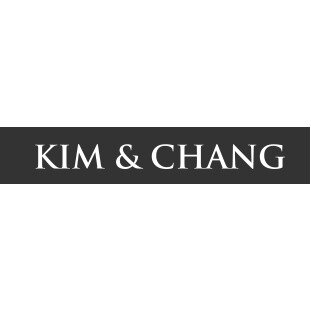Best Debt & Collection Lawyers in Jongno-gu
Share your needs with us, get contacted by law firms.
Free. Takes 2 min.
List of the best lawyers in Jongno-gu, South Korea
About Debt & Collection Law in Jongno-gu, South Korea
Debt and collection laws in Jongno-gu, South Korea, are designed to protect both creditors and debtors in financial transactions. Located in the heart of Seoul, Jongno-gu is a district where business and finance intersect, making debt-related issues a common occurrence. The local legal framework is shaped by the Civil Act and the Civil Procedure Code, supplemented by various consumer protection laws. These laws cover everything from the recovery of unpaid debts to the protection of consumers against unfair collection practices.
Why You May Need a Lawyer
Seeking legal assistance in debt and collection matters can be crucial for various reasons. If you are a creditor, a lawyer can help you navigate the complexities of recovering overdue payments, drafting demand letters, and representing you in court proceedings. For debtors, legal professionals can provide guidance on defending against aggressive collection tactics, negotiating settlements, and understanding your rights. In cases of bankruptcy, legal expertise is essential for both creditors and debtors to effectively manage the proceedings.
Local Laws Overview
The key laws governing debt and collection in Jongno-gu include the Civil Act, which outlines the rights and obligations of parties in financial transactions, and the Civil Procedure Code, which details the process for resolving disputes in court. Consumer protection laws also play a significant role, ensuring that debtors are treated fairly and not subjected to harassment. These laws regulate communication times, prohibit false statements, and require debt collectors to provide clear information on the debt.
Frequently Asked Questions
1. What actions can a creditor legally take to collect a debt?
A creditor can send demand letters, hire a collection agency, or file a lawsuit to collect a debt. They must follow legal protocols and cannot harass or threaten the debtor.
2. Can a debt collector contact me at any time?
No, debt collectors are restricted by law from contacting you at unreasonable hours, typically defined as before 8 AM or after 9 PM, unless you agree to it.
3. What should I do if I am unable to pay my debt?
Contact your creditor to discuss your financial situation. You may negotiate a payment plan or settlement to avoid further legal action.
4. Are there laws protecting me from unfair debt collection practices?
Yes, several laws protect consumers from harassment and unfair practices by collectors, including strict regulations on communication and collection methods.
5. How can a lawyer assist me if I am being sued for a debt?
A lawyer can represent you in court, help you understand your rights and obligations, and negotiate on your behalf to reach a feasible solution.
6. What happens if I ignore a debt collection notice?
Ignoring a collection notice can lead to further legal action, such as a lawsuit, which may result in a court judgment against you, potentially impacting your credit and leading to wage garnishments.
7. Can I dispute a debt that I believe is incorrect?
Yes, you have the right to dispute a debt. Send a written notice to the creditor stating your dispute. They must then provide verification of the debt.
8. How long can a creditor attempt to collect a debt in South Korea?
The statute of limitations for debt collection in South Korea generally ranges from three to ten years, depending on the type of debt.
9. Can bankruptcy clear all my debts?
Bankruptcy can discharge many types of debts, but some, such as child support and certain taxes, may not be discharged.
10. What is the process for filing for bankruptcy?
To file for bankruptcy, you must file a petition with the court, including details of your debts, income, expenses, and assets. A lawyer can guide you through this process.
Additional Resources
If you're in need of legal advice on debt and collection, consider reaching out to the Seoul Bar Association or the Korea Legal Aid Corporation. Governmental bodies such as the Financial Supervisory Service offer consumer counseling and dispute resolution services. Local community centers may also provide resources and referrals to legal professionals.
Next Steps
If you require legal assistance in debt collection, start by gathering all relevant information about your case, including correspondence from creditors, payment history, and any legal notices. Consult a lawyer specializing in debt and collection to discuss your situation and explore your legal options. If you are unsure where to find legal representation, consider contacting a local legal aid organization for assistance or referrals.
Lawzana helps you find the best lawyers and law firms in Jongno-gu through a curated and pre-screened list of qualified legal professionals. Our platform offers rankings and detailed profiles of attorneys and law firms, allowing you to compare based on practice areas, including Debt & Collection, experience, and client feedback.
Each profile includes a description of the firm's areas of practice, client reviews, team members and partners, year of establishment, spoken languages, office locations, contact information, social media presence, and any published articles or resources. Most firms on our platform speak English and are experienced in both local and international legal matters.
Get a quote from top-rated law firms in Jongno-gu, South Korea — quickly, securely, and without unnecessary hassle.
Disclaimer:
The information provided on this page is for general informational purposes only and does not constitute legal advice. While we strive to ensure the accuracy and relevance of the content, legal information may change over time, and interpretations of the law can vary. You should always consult with a qualified legal professional for advice specific to your situation.
We disclaim all liability for actions taken or not taken based on the content of this page. If you believe any information is incorrect or outdated, please contact us, and we will review and update it where appropriate.








